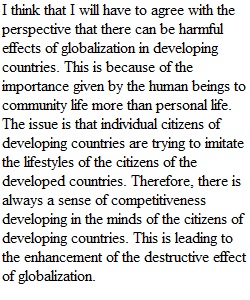


Q Two tragic ironies mark the story of Okonkwo in Things Fall Apart - that a man driven by his community's perception of him ends up committing manslaughter and suicide, two acts viewed gravely by that same community. The culturally coded earth or community is the protagonist of the novel - with Okonkwo as one of its flawed promises. In the sociological data - rites of marriage, exorcism, burial, moonlight tales - that Achebe integrates into the narrative, he paints a picture of a community with strict codes of demarcation and belonging, both as a way of ensuring order and as a protection mechanism. When Okonkwo beats his wife in the Week of Peace, he is chastised because "the evil [he has] done can ruin the whole clan." And when the oracle decrees that Ikemefuna - Okonkwo's foster-son - should be killed, there is no disregarding that directive. Okonkwo partakes in the deed against his finer feelings because he does not want to be devalued in the eyes of the community. The killing of Ikemefuna dramatizes in fact one of the most poignant tensions in the novel - the appeal to approximate kinship ties ("he calls you his father") versus the social might of the oracle ("The Oracle of the Hills and Caves has pronounced it"). The community-centered framework of Things Fall Apart locates its tragedy in the larger destruction of the root values of the community - a wrenching-out process that means the erosion of a much-cherished identity and way of life. In Things Fall Apart, the death of the community prefaces that of Okonkwo as a priori causality by provocation. The incident that best illustrates this destruction is the unmasking of an ancestral spirit by Enoch, one of the new converts. Achebe describes it in the language of a death that heralds a loss of certainty and clarity: "Enoch had killed an ancestral spirit, and Umuofia was thrown into confusion." So, indeed for Achebe (in Things Fall Apart), globalization has not always served 'developing' nations well.
View Related Questions